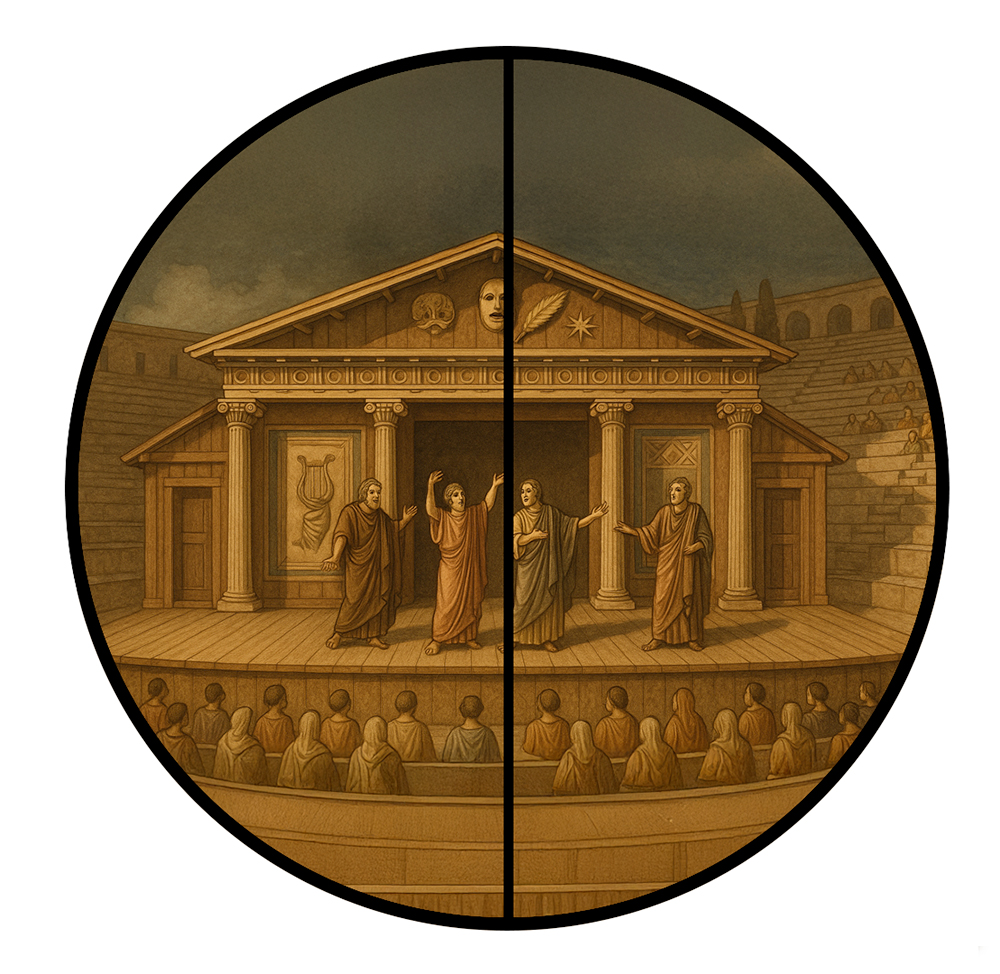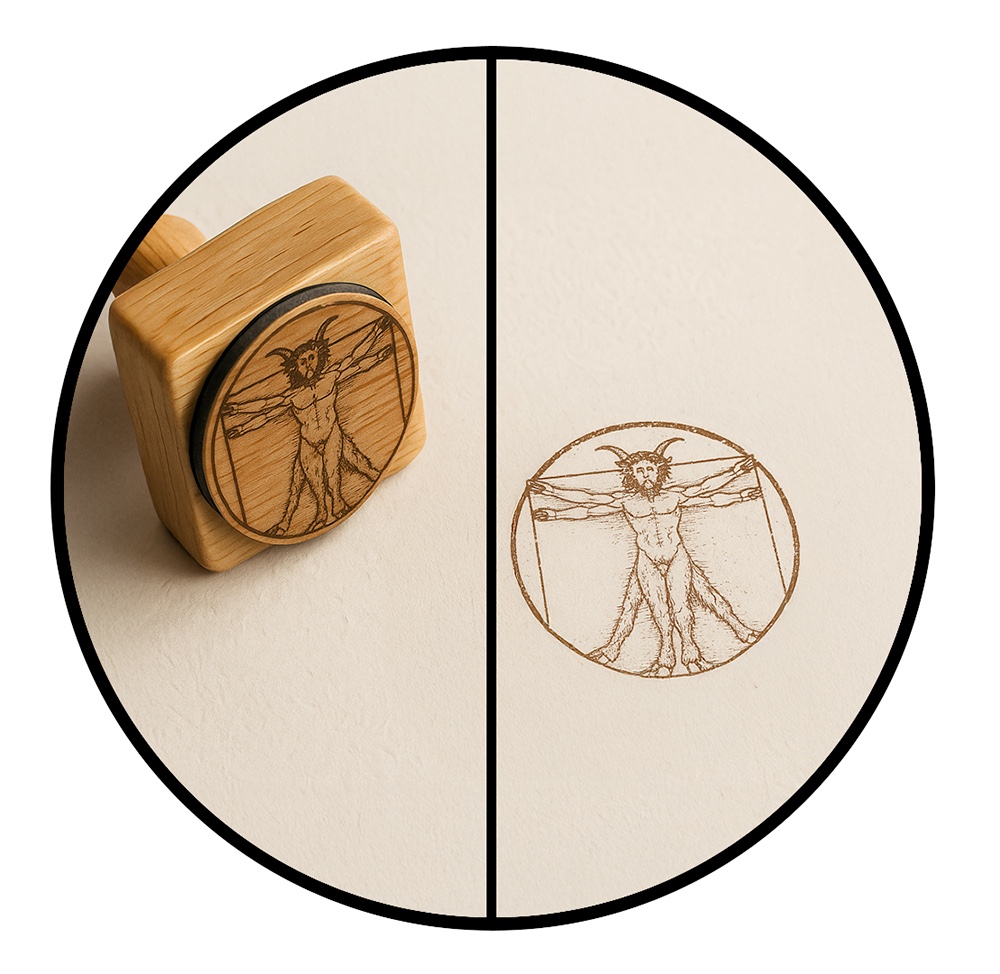 Acts 7:43
Acts 7:43

|
Strongs 2532
[list] Λογεῖον Perseus kai καὶ and Conj |
|
Strongs 353
[list] Λογεῖον Perseus anelabete ἀνελάβετε You took up V-AIA-2P |
|
Strongs 3588
[list] Λογεῖον Perseus tēn τὴν the Art-AFS |
|
Strongs 4633
[list] Λογεῖον Perseus skēnēn σκηνὴν tabernacle N-AFS |
|
Strongs 3588
[list] Λογεῖον Perseus tou τοῦ the Art-GMS |
|
Strongs 3434
[list] Λογεῖον Perseus Moloch Μολὸχ of Moloch N-GMS |
|
Strongs 2532
[list] Λογεῖον Perseus kai καὶ and Conj |
|
Strongs 3588
[list] Λογεῖον Perseus to τὸ the Art-ANS |
|
Strongs 798
[list] Λογεῖον Perseus astron ἄστρον star N-ANS |
|
Strongs 3588
[list] Λογεῖον Perseus tou τοῦ the Art-GMS |
|
Strongs 2316
[list] Λογεῖον Perseus theou θεοῦ God N-GMS |
|
Strongs 4771
[list] Λογεῖον Perseus hymōn [ὑμῶν] of you PPro-G2P |
|
Strongs 4481
[list] Λογεῖον Perseus Rhaiphan Ῥαιφάν Rephan N-GMS |
|
Strongs 3588
[list] Λογεῖον Perseus tous τοὺς the Art-AMP |
|
Strongs 5179
[list] Λογεῖον Perseus typous τύπους images N-AMP |
|
Strongs 3739
[list] Λογεῖον Perseus hous οὓς which/whichever RelPro-AMP |
|
Strongs 4160
[list] Λογεῖον Perseus epoiēsate ἐποιήσατε you did V-AIA-2P |
|
Strongs 4352
[list] Λογεῖον Perseus proskynein προσκυνεῖν to kiss V-PNA |
|
Strongs 846
[list] Λογεῖον Perseus autois αὐτοῖς to themselves PPro-DM3P |
|
Strongs 2532
[list] Λογεῖον Perseus kai καὶ and Conj |
|
Strongs 3351
[list] Λογεῖον Perseus metoikiō μετοικιῶ I will remove V-FIA-1S |
|
Strongs 4771
[list] Λογεῖον Perseus hymas ὑμᾶς yourselves PPro-A2P |
|
Strongs 1900
[list] Λογεῖον Perseus epekeina ἐπέκεινα beyond Prep |
|
Strongs 897
[list] Λογεῖον Perseus Babylōnos Βαβυλῶνος Babylon N-GFS |
Ῥομφά - Goliath's Single Edged Sword
And you all took up the Stage Building of the One Reigning as King ("Molech"), and the Star Constellation of the God, Broadsword ("Rompha")29— the Pattern Stamps which you made to kiss/prostrate to themselves, and I will relocate yourselves on the yonder side of Babble ("Babylon")!

τύπος - archetype, model, impression of a seal, die used in striking coins, hollow mold, cast mould, prescribed form/model to be imitated, general principle/rule of life
(cf. LSJ τύπος)And ye took up the tent of Moloch, and the star of your god Remphan, types which ye made to worship them: and I will transplant you beyond Babylon.
And you took up the tent of Moloch, and the star of your god Remphan, the figures which you made" "in order to worship them. And I will remove you beyond" Babylon. Amos 7:45
Footnotes
| 29 | Act 7:43 The Greek text of Acts 7:43 exhibits considerable variation (and confusion among scholars) regarding the name of the deity associated with the “star/constellation of God.” Major manuscript readings include Ῥομφά / Ῥομφάν (Nestle 1904; Westcott-Hort 1881; Tischendorf 8th ed.), Ρεμφάν / Ρεμφὰν (Byzantine Majority Text 2005; Greek Orthodox Church; Scrivener’s Textus Receptus 1894; Stephanus TR 1550), and Ραιφάν (some critical editions, reflecting an attempt to render the Hebrew כִּיוּן, Kiyyun). The Ῥομφά / Rompha reading aligns phonetically with the Greek noun ῥομφαία (“single-edged sword”), providing a lexical basis for translating the term literally as the broadsword or single edge sword, whereas the later variants modify the transliteration of the Semitic deity name, later rendered in English as Remphan or Rephan. Who is Molech? Regular forms from mlk (“to reign, be king”)
The Masoretic pointing of Molech apparently represents an artificial, derogatory distortion of the normal participle/noun. Because the name obviously refers to a contemptous, detestable child-eating god, the Masorete scribes tampered with the form— instead of honoring him as mōlēkh (“the reigning one”), the scribes gave him a corrupted, contemptuous shape mōlekh (מֹלֶךְ). That way, the name still looks like “king” or “reigner,” but sounds wrong to Hebrew ears. Star Constellation of the God ἄστρον astron is properly a constellation. There is no 2nd person plural personal/possessive pronoun in the earliest manuscripts. It was likely added, as the habit seems to be, to force a certain "clarity." Hence, "Your God" is not the most accurate. |